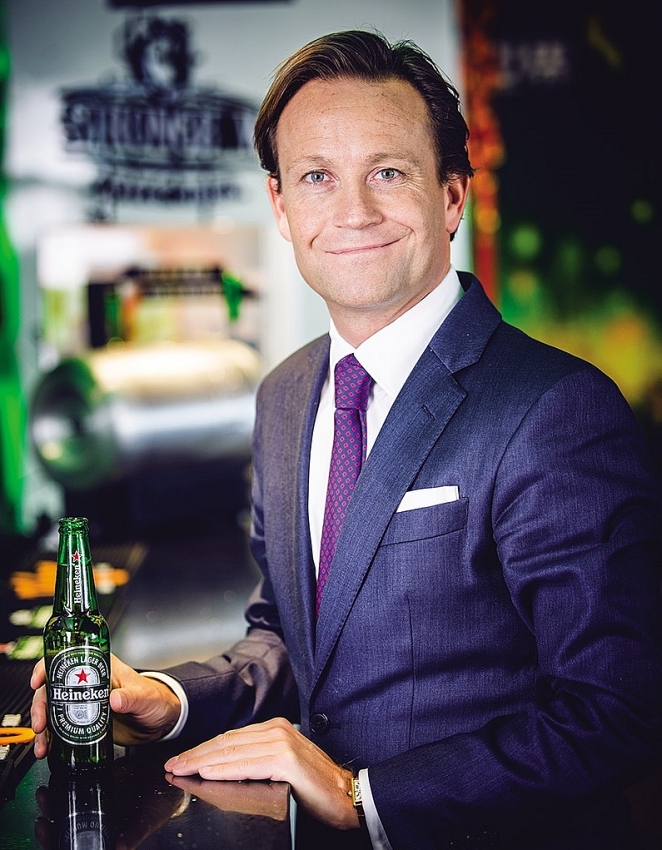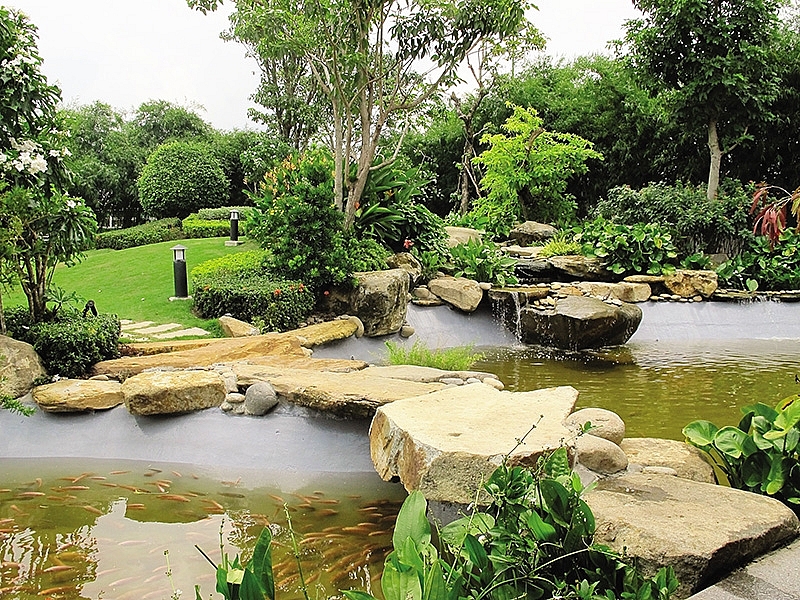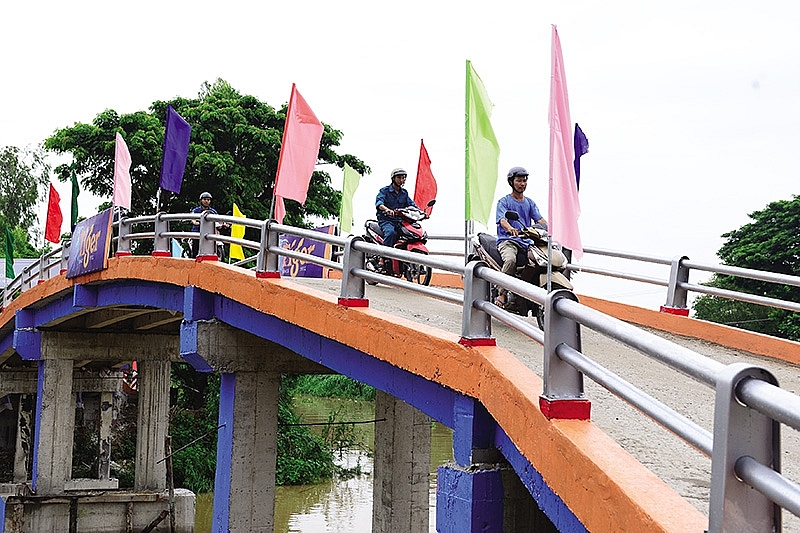Think circular, think HEINEKEN Vietnam
 |
As the new managing director for HEINEKEN Vietnam, what are your thoughts on the sustainability milestones that your company has achieved so far?
Whilst I am new to HEINEKEN Vietnam, I am already very proud of the commitment our people have shown in championing the sustainability agenda in Vietnam. I am very happy to lead a company that is constantly creating tangible value for people, planet and prosperity here in Vietnam.
Sustainability has always been at the core of HEINEKEN Vietnam, hence we have been using aspects of a circular economy approach right from the start of our operation. Our circular economy practices are simple, practical and show concrete results that applying a circular economy approach not only helps to reduce waste but also creates real value for our society.
For example, our Zero Waste to Landfill goal means that we reuse or recycle nearly all (around 99 per cent) of the waste and by-products generated from our production processes. All of our spent yeast and spent grain is recycled as fertiliser or stock feed and all of our bottles, cardboard, aluminium, plastic and paper are either reusable or recyclable. Similarly, every drop of our wastewater is treated to Grade A standard so that it can safely be returned to the environment including for landscaping and irrigation at our breweries.
I think it is remarkable that we power nearly all of our six breweries with renewable thermal energy from carbon neutral, biomass-generated steam. Our goal is to reduce our environmental footprint wherever we can, so we also go beyond production and look to optimise our operations in logistics as well. By taking a circular economy approach to our logistics operations we managed to cut 2,500-tonne of CO2 emissions from our logistics operations in 2018 alone.
Another project that I am proud of is our Tiger Cap Recycling initiative. This is a project that clearly demonstrates the benefits that circular economy can bring to society. By collecting bottle caps, which are turned into iron, to build a bridge for the community, we encourage recycling and reduce waste while providing vital infrastructure for the community, all while staying true to Tiger Beer’s uncage spirit in making an impact through bold actions. We have already built two Tiger bottle-cap bridges in Tien Giang and An Giang province this year and a third one will be completed in Ho Chi Minh City in early 2020.
At the NCSD 2019, HEINEKEN Vietnam presented on the benefits of circular economy. What do you think is the biggest value that this system can bring to stakeholders in Vietnam?
The circular economy is a sustainable alternative to the traditional linear economy where manufacturers take natural resources as raw materials to make products which are used and then discarded as waste.
Circular economy, on the other hand, focuses on reusing and recycling in order to maximise the lifespan of all resources used. This protects the environment because we are reducing the use of scarce natural resources and minimising the amount of waste that goes to landfills. At the same time, circular economy gives businesses a competitive edge as it enhances operational efficiency, including cost savings.
As shown by our various circularity practices – be it zero waste to landfill, wastewater treatment or biomass– taking a circular economy approach is just as good for business as it is for the environment. By adopting this model, we can all work towards achieving the National 2030 Agenda for Sustainable Development in Vietnam.
 |
| A fishpond using treated wastewater at HEINEKEN Vietnam’s brewery |
 |
| A new bridge made from Tiger bottle caps was recently inaugurated in An Giang |
HEINEKEN Vietnam is leading the sustainability agenda in Vietnam with the circular economy approach. What challenges can you foresee for the business community when implementing circular economy? What advice can you give them to mitigate this?
Although awareness of circular economy is getting more widespread, knowledge of its practical application is more limited, particularly for small-to-medium businesses. The less information there is about practical ways to apply circular economy practices, the harder it is to adopt; especially with the prevailing misconception that sustainability adds rather than saves cost.
Acting sustainably with a circular approach often comes at no added cost and will instead save money in the long run. To illustrate this point, most of our breweries in Vietnam run on carbon neutral, biomass-generated steam. The switch to biomass did not require any capital expenditure on our part and has saved us money right from the outset. Even in instances where capital investment may be required, often the payback is better over time through more efficient pricing or savings across the lifetime of the initiative.
Because of this, we strongly encourage our partners and the business community to adopt a circular economy approach. It is relatively easy to start by simply analysing the different stages of your production process and assessing ways in which you could be more efficient, use less natural resources, reuse products or their components and, crucially, consider the end-of-life of the product or packaging right from the initial design stage.
After receiving the Most Sustainable Company (Manufacturing Sector) award for two consecutive years in 2017 and 2018, what is HEINEKEN Vietnam’s sustainability vision moving forward?
My predecessors have already done an excellent job in laying a strong sustainability foundation over the last 28 years. Hence, I am delighted to be working with a committed group of employees who choose to act sustainably in both their professional and personal lives. Together, I believe that we can continue our journey to create real value for people, planet and prosperity to brew a better Vietnam.
Although circularity is already a core part of our sustainability strategy, we are still learning and improving as we go. Therefore, we will continue to look for ways to innovate our operations to generate more sustainable value for all stakeholders involved.
One great sustainability initiative that the public can look forward to in 2020 is the full opening of our Vung Tau Brewery. This very special brewery will not only be one of the largest in Vietnam but importantly will be the first carbon neutral brewery in the region, generating 100 per cent of its thermal and electrical energy from biomass.
Another area where we will continue to do more is driving awareness around drink-driving. At HEINEKEN Vietnam, we always advocate responsible consumption, so you will continue to see brave new campaigns from us under Heineken’s ‘When You Drive, Never Drink’ platform.
What the stars mean:
★ Poor ★ ★ Promising ★★★ Good ★★★★ Very good ★★★★★ Exceptional
Related Contents
Latest News
More News
- The next leap in Cloud AI (December 11, 2025 | 18:19)
- Vietnam’s telecom industry: the next stage of growth (December 11, 2025 | 18:18)
- Five tech predictions for 2026 and beyond: new era of AI (December 11, 2025 | 18:16)
- CONINCO announces new chairman and CEO (December 10, 2025 | 11:00)
- How AWS is powering the next-gen data era (December 09, 2025 | 13:14)
- Outlook in M&A solid for Singapore (December 08, 2025 | 10:31)
- Vietnamese firms are resetting their strategy for global markets (December 05, 2025 | 17:04)
- LPBank Securities accelerates AI and data innovation with AWS (December 05, 2025 | 09:00)
- Improving traceability capacity with Zebra Technologies (November 26, 2025 | 10:08)
- Ho Chi Minh City engages 500 CEOs in dialogue on building global megacity (November 25, 2025 | 16:00)

 Tag:
Tag:




















 Mobile Version
Mobile Version